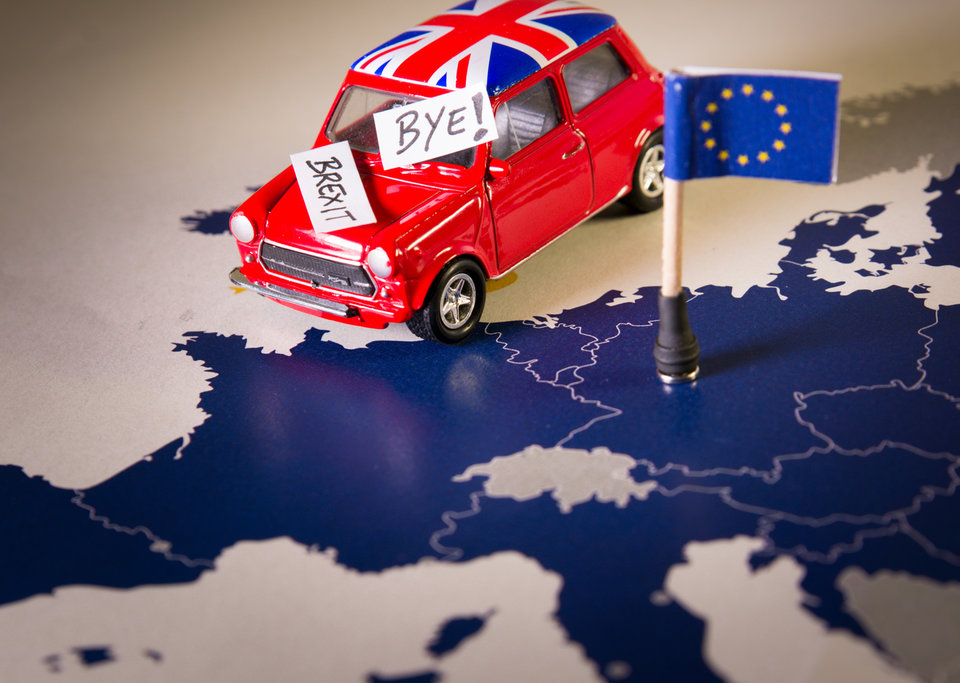
The car industry is worried about Brexit and here’s why
The most vocal critic in the business world of a No-Deal Brexit has arguably been the car industry, with warnings about the effect that damaging the supply lines for car manufacturing on both sides of the Channel.
Image copyright:
Scroll down or swipe up to read more
Most recently in September, lead organisations representing vehicle and parts manufacturers in the EU, the European Automobile Manufacturers Associations (ACEA) and European Association of Automotive Suppliers (CLEPA), joined forces with 21 national associations, including the Society of Motor Manufacturers and Traders (SMMT), the Committee of French Automobile Manufacturers (CCFA), and the German Association of the Automotive Industry (VDA), to stress the impact of a no-deal Brexit on the industry.
“Brexit is not just a British problem,” said Christian Peugeot, president of the CCFA. “We are all concerned in the European automotive industry, and even further. Be it as exporters to the UK market or producers locally, which we are both, we will inevitably be negatively affected.”
The EU’s automotive industry produces 19.1m vehicles annually, employing 13.8m people – representing one in 16 of the EU’s workforce. Fundamental to this success, according to the joint statement, is the integrated nature of the industry. The interwoven nature of the market has sought to maximise single market and customs union benefits to the advantage of businesses throughout the EU, and no-deal Brexit threatens that ecosystem, the associations warned.
Should the UK leave the EU without a deal, the industry leaders believe there will be a ‘seismic shift’ in trading conditions, with billions of euros of tariffs threatening to impact consumer choice and affordability for both the UK and the EU.
The statement also warns that the end of barrier-free trade could bring harmful disruption to the industry’s operating model – with the cost of one minute of production stoppage in the UK amounting to £50,000. Elsewhere, WTO tariffs on vehicles could add £5bn to the EU-UK auto trade bill, raising the price for customers if manufacturers are unable to absorb the additional cost.
Letter to the PM
In July, the Society for Motor Manufacturers and Traders (SMMT) penned an open letter to Boris Johnson, urging the newly-appointed prime minister to avoid a no-deal Brexit.
Mike Hawes, chief executive of the SMMT, explains in the letter that the automotive industry is expecting to see more change in the next 10 years than there has been in the last 50. “The UK sector remains strong, with high levels of productivity, a skilled and flexible workforce, and first-rate research and engineering facilities, so we are well placed to take advantage of the opportunities that will emerge.
“Automotive is, however, a highly competitive sector internationally, with fine margins. We cannot afford to be complacent, and we need the right policy, business and trading environment if we are to thrive.”
Hawes asked Johnson to support the transition to zero emission vehicles by investing in charging infrastructure, increasing consumer incentives and securing a gigafactory in the UK to secure an efficient supply chain for electric vehicles in the UK.
“Automotive is a key driver of productivity an innovation,” continued Hawes. “It contributes £18.6bn to the UK, employs hundreds of thousands and makes the most significant contribution to UK trade of any manufacturing sector, helping balance the economy right across the country. In short, when automotive succeeds, so does the UK.”
The success of the UK automotive industry, according to Hawes, will depend on the outcome of the Brexit situation. “A no-deal Brexit presents an existential threat to our industry,” said Hawes. “We are highly integrated with Europe, and a no-deal Brexit would result in huge tariff costs and disruption that would threaten production, as well as further undermining international investors’ confidence in the UK.
“We need a deal with the EU that secures frictionless and tariff free trade. No-deal Brexit is simply not an option.”
